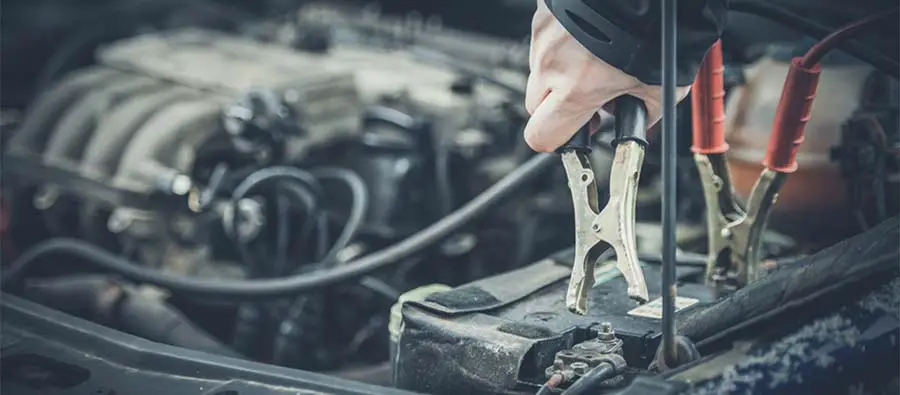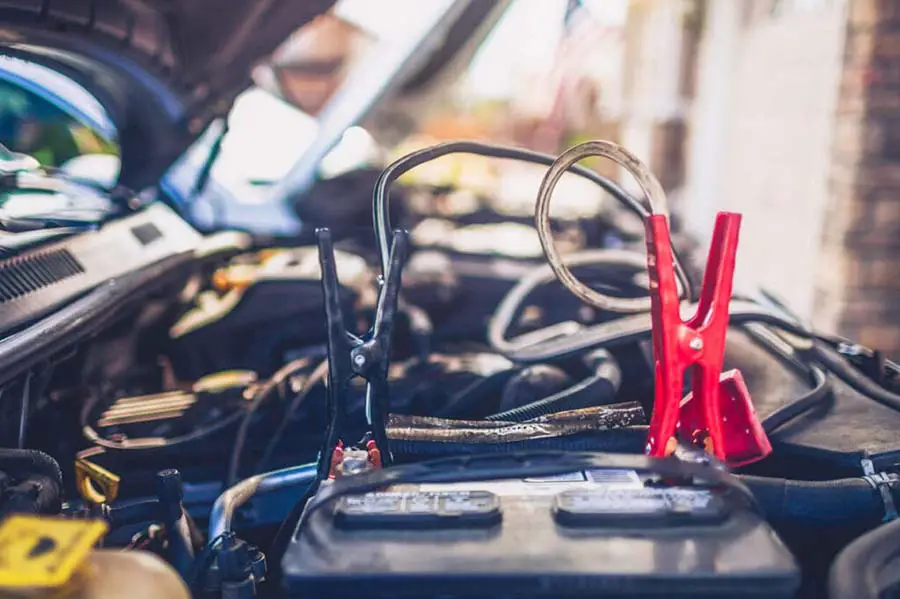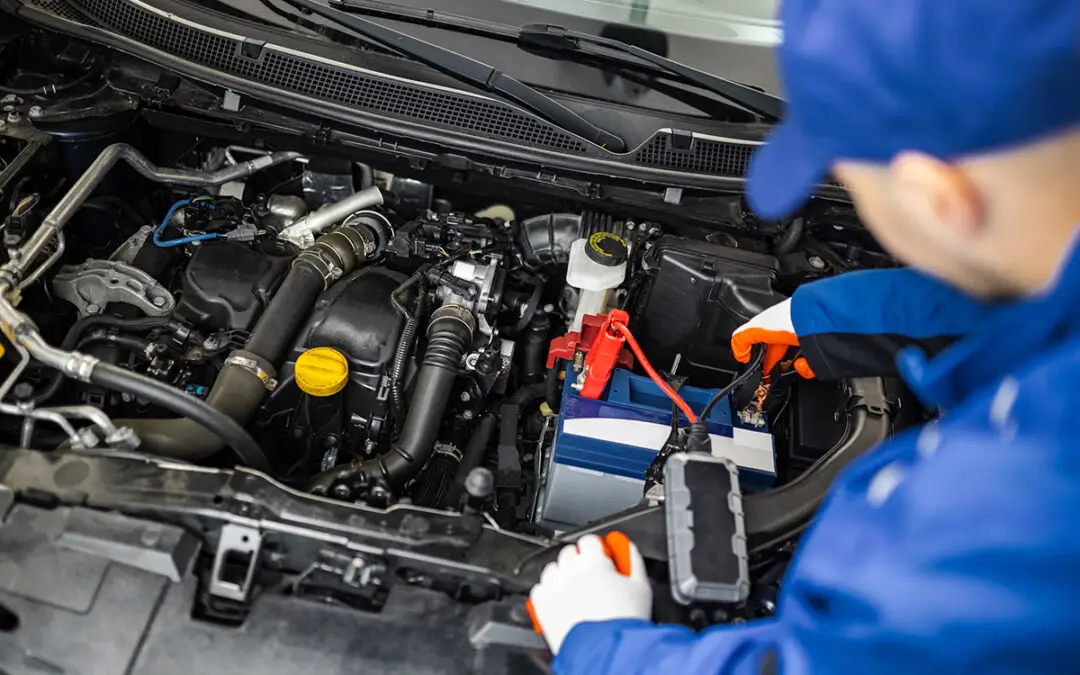Many car owners know cold weather can weaken or even destroy a car’s battery. But, how about hot climates?
With this article, we will give you the answer to the questions above and even provide you with some tips to protect your batteries from heat damage. With no further ado, let’s jump right into it.
How Does A Car Battery Work?
All the electrical parts of your vehicle are powered by a surge of electricity from the battery. Your car won’t be able to start without it.
Here’s how it works. It transforms chemical energy into electrical energy required to operate your car, supplying the starter with voltage. Besides that, it maintains a stable voltage so your engine can continue running.
Does Heat Affect A Car Battery?
Yes, it does. Your car’s accumulator is more at risk from oppressive heat or high summer temperatures than the frigid winter air. In fact, hot temperatures cause your battery to run at a higher capacity, but they also reduce its total service life.
As it turns out, the heat of summer can make your automobile accumulator “parched.” During summer months, the temperature under the hood of your car is a lot higher, which speeds up battery degradation.
Additionally, the liquid electrolyte in the battery may start to evaporate, resulting in diminished engine starting power, a drop in battery capacity, and ultimately a reduction in its life expectancy.
According to accumulator testing, a normal automotive battery’s lifespan is typically cut in half for every 15-degree Fahrenheit increase in ambient temperature. For example, a car accumulator can last ten years at 77 degrees, but if you leave it in a 92-degree environment, it might only live for five years.
Extreme heat can also harm the charging system and voltage regulator, leading to overcharging. The eventual result of such frequent overcharging is accumulator death.
In addition, extreme temperatures negatively affect the lead plates stored inside the battery, causing internal corrosion that worsens its state. Remember that your batteries cannot be repaired if they have suffered capacity loss from excessive heat exposure.
Tips To Prevent Heat Damage On Car Battery

Below are our tips that can help you avoid unwanted damage.
- Park your vehicle in the shade instead of in the full sunlight. Why?
The sun can cause damage not only to the automobile’s exterior and interior, it also raises the temperature under the car’s hood, exposing the accumulator to extreme heat.
Avoid this since we all know how heat affects your car battery. Thus, always look for the shade in case you need to park your vehicle outside for long periods of time.
Suppose your house does not have a garage; consider installing a carport to provide shade for your car throughout the day. Or, purchase a car cover or tarp if you have a limited budget. Look for the ones made of breathable fabric to protect the paintwork.
- Make sure you give the battery and its case regular maintenance during hot summer time. Bring your car to a mechanic as soon as possible once there’s anything out of the norm, such as cracks or bulges.
- Keep it clean. Remove any corrosion you notice on the battery terminals. It can be eliminated by brushing or wiping with a piece of cloth.
- Wash your vehicle regularly. This way, you can keep your car clean, reducing overall damage caused by the heat. Plus, it helps boost the condition of the automobile and prevent early aging.
- Replace the coolant in your cooling system as needed. Your cooling system may deteriorate and turn acidic with time. The acidity can erode seals and hoses, causing overheating and damaging your engine.
- Add water to the accumulator to keep it functioning properly. In lead-acid batteries, lead plates are immersed in electrolytes (a mixture of sulfuric acid and water).
The extreme heat will cause water evaporation, resulting in a decline in electrolyte levels. Sulfate crystals will develop on the plates if the electrolyte solution is insufficient, compromising the accumulator’s ability to receive current flow.
Warning Signs Of Failing Batteries
How can you tell if there’s something wrong with the battery? Here are some symptoms and indications that might point to a problem with your car’s parts. Some are visible, while others may require a professional examination.
- The dashboard displays “battery” or “check engine” light. This means the accumulator power is weak or might be dying.
- The level of the battery fluid is low. Most average car batteries feature a translucent area of the shell so you can monitor the fluid level in your battery. You can also examine it by taking the black and red caps off if they aren’t sealed.
- The case of the accumulator appears bloated or swollen. If you notice this happening to the case, it can signify a faulty accumulator.
- There is corrosion on the battery posts. It can be a big issue since the corrosion blocks the battery power flow, making the engine fail to start.
- The interior lighting, exterior lights or headlights are dim. The lights may not function properly due to a weak battery.
- There is a funky smell similar to the rotten egg odor around the battery. This is a sign of the accumulator leaking. If this happens, contact the mechanic immediately.
- The battery is older than three years. Once it hits the three-year mark, give it a check and replace it if necessary.
Whenever you notice these signs, check your vehicle and its accumulator. However, remember that no matter how carefully you maintain the car batteries, they will still need to be replaced after a while of use.
See more: 8 Signs Your Car Battery Is Dying
Conclusion
After reading this article, we hope you are satisfied with the answer we provide.
As you can see, not only cold temperatures can harm your vehicle but so can the hot conditions. Follow our tips to minimize the damage from the summer heat. Also, keep in mind all the signs of weakening battery so that you can always have your car in great condition.









0 Comments